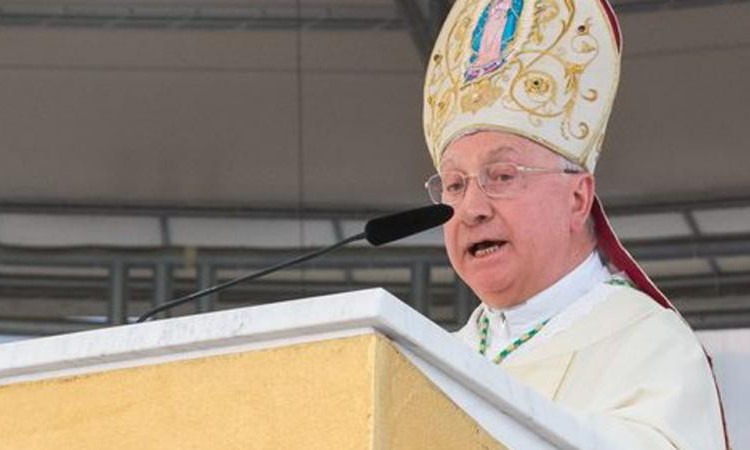
Bosnian capital city of Sarajevo proved its status of 'European Jerusalem' and such role requires building of new bridges and preserving safe and civilised relationships, Pope's special representative in Bosnia, Luigi Pezzuto, said ahead of the planned Mass for Nazi supporters killed in Bleiburg in 1945, which sparked reactions among Sarajevans who objected the event.
“Condemning all crimes, regardless of who committed them, a prayer for the souls of the innocent ones and forgiveness, are the ground for those civilised relationships,” the Apostolic Nuncio to Bosnia and Herzegovina told the Catholic Weekly (Katolički tjednik).
The Mass was announced by Bosnia's Catholic Archbishop Vinko Puljic, which sparked reactions among anti-fascist organisations and activists as well as some officials.
Some organisations announced holding a protest during the ceremony, set to take place this Saturday, May 16, at Sarajevo's main cathedral.
The Apostolic Nuncio's Office fully supports the statement by Bosnia's Bishops' Conference, which among other things said that the Catholic bishops resolutely rejected any unjust judgements regarding the Mass for the Bleiburg victims set to take place at Sarajevo cathedral on Saturday, said Pezzuto.
He also recalled that Pope Francis told Bosnia Presidency members during his visit to Sarajevo on June 6, 2015, that Sarajevo and Bosnia have a special meaning for Europe and the whole world.
The capital of Bosnia rightly holds the title of 'European Jerusalem' and it actually is a crossroads of cultures, peoples and religions, and such role requires building the new bridges over and over again, while recovering those that already exist and preserving them for the sake of safe and civilised relationships, said the Pope's representatives.
Amid a WWII Yugoslav army offensive aimed at defeating pro-Nazi and anti-communist forces, tens of thousands of mostly pro-fascist Croat soldiers and their families fled in 1945 toward Austria to seek help from the British army, only to be turned back by the Brits right into the hands of anti-fascists.
In and around the Austrian town of Bleiburg, thousands of the so-called Ustashas were killed.
The Yugoslav forces saw the slaughter they committed as punishment for the tens of thousands of Jews, Serbs, Roma and anti-fascists killed by the Ustasha during WWII.
After the dissolution of Yugoslavia, Croatia began commemorating the Bleiburg victims with a large gathering near the Austrian town every year.
Croatian nationalists perceive the controversial annual event as a symbol of their suffering under communism.
Kakvo je tvoje mišljenje o ovome?
Učestvuj u diskusiji ili pročitaj komentare





 Srbija
Srbija
 Hrvatska
Hrvatska
 Slovenija
Slovenija







